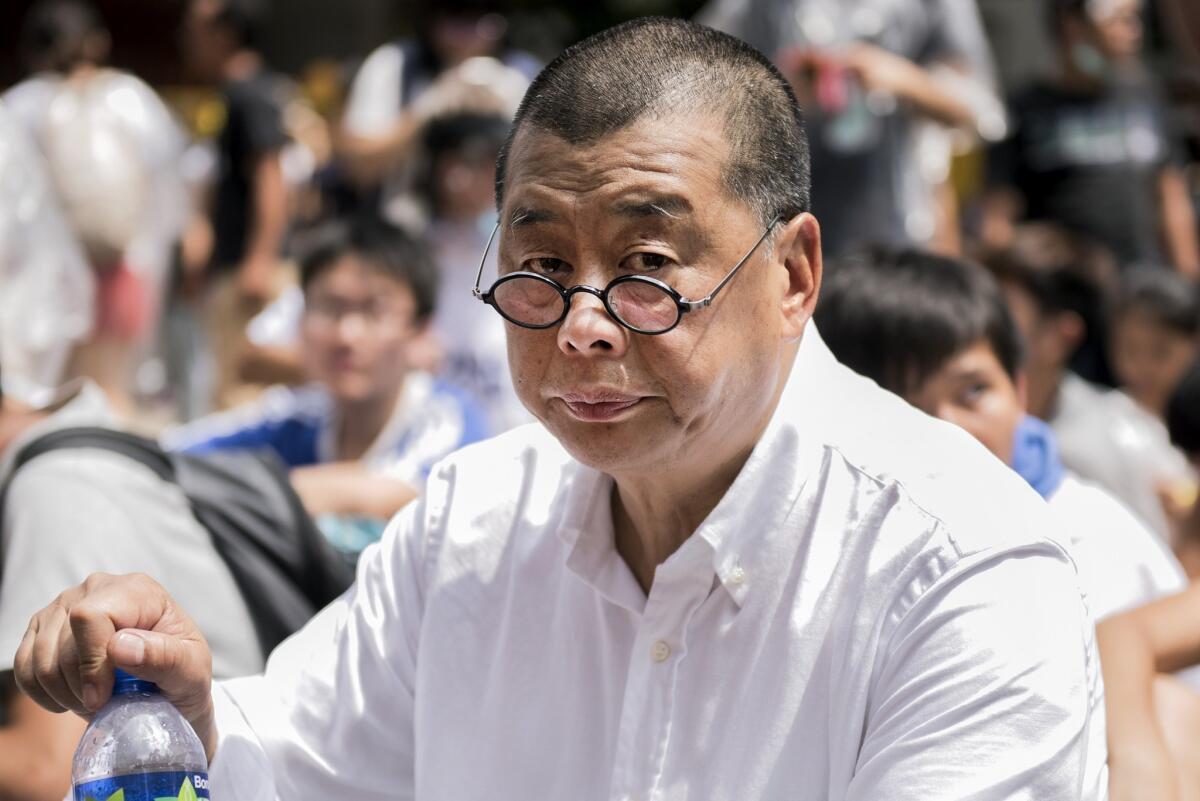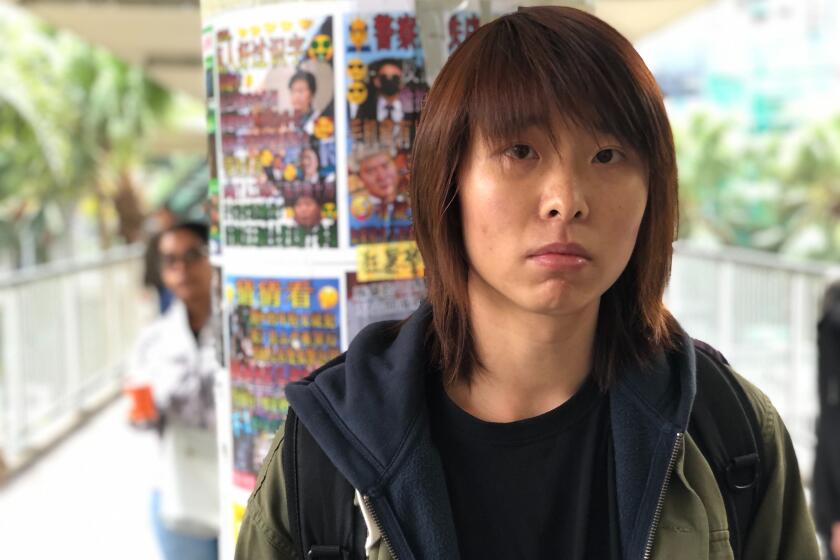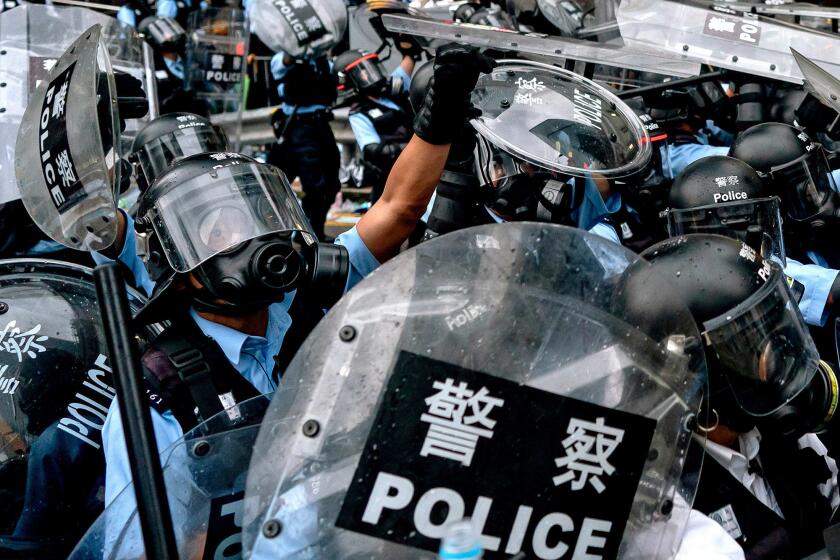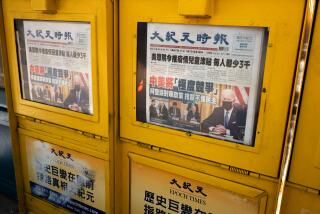Hong Kong arrests pro-democracy media tycoon and opposition lawmakers

TAIPEI, Taiwan — Hong Kong police on Friday made a series of arrests targeting high-profile figures in the city’s pro-democracy movement.
It was a move that surprised many in a city still reeling from months of often-violent anti-government protests and now facing the coronavirus outbreak, which has infected 93 people and killed two in Hong Kong. Chief Executive Carrie Lam’s handling of both crises has dragged her popularity down to a new low — under 10%, according to a survey released Tuesday by the Public Opinion Program at the University of Hong Kong.
Jimmy Lai, owner of the staunchly pro-democracy Apple Daily newspaper; Lee Cheuk-yan, former leader of the opposition Labor Party; and Yeung Sum and Albert Ho, former chairmen of the Democratic Party; were all charged with “unlawful assembly” relating to a protest on Aug. 31.
Lai was also arrested in connection with a brief verbal altercation he had with a reporter from a rival, pro-government publication two years earlier, during the annual candlelight vigil to mourn victims of the 1989 Tiananmen Square massacre.
Founded by Lai in 1995, Apple Daily is Hong Kong’s second bestselling newspaper and a stalwart of the pro-democracy camp. Consistently critical of the local government and China’s ruling Communist Party, it has often encouraged people to take to the streets and helped to rally support for the 2014 Umbrella Movement protests.
Trust in the Police Force has deteriorated after months of protests. Now it’s seen as just the Chinese government’s tool of oppression, ex-cop says.
“This morning’s arrests are blatant acts of political suppression by the Hong Kong government and the Chinese Communist Party,” said Samuel Chu, managing director of the Washington-based Hong Kong Democracy Council. “It is the Hong Kong government’s naked attempt to silence opposition voices, and it will not work.”
The 2019 protests sparked by Chief Executive Lam’s attempts to push through an extradition bill that would allow the transfer of suspects to mainland China were largely grass-roots and leaderless. But the arrestees are veteran activists well known for their roles in the Umbrella protests that failed to win democracy for the semiautonomous territory.
“Authorities appear to be recycling their tactics from 2014, when they often waited months or even years to lay charges against protesters,” said Wilson Lai, founder-member of the Progressive Lawyers Group.
Lai said the timing of the arrests may be tied to the coronavirus outbreak that has shifted global attention away from the protest movement, allowing authorities to make the arrests “without stirring up unhelpful international headlines.”
This week, a Chinese court also sentenced Gui Minhai, Hong Kong-based bookseller who published volumes disparaging Chinese President Xi Jinping, to 10 years in prison for “illegally providing intelligence overseas.” Gui, a Swedish citizen, was abducted from Thailand in 2015.
Hong Kong authorities say the riot officer was trying to post pro-democracy signs near a rail station. Some protesters see hope in divided police ranks.
Mark Simon, the group director for Lai’s Next Digital media group, asked whether the morning’s events were “Xia Baolong announcing his arrival,” referring to the new head of the central government’s Liaison Office in Hong Kong.
Earlier this month, Beijing demoted the former Liaison Office chief who served during the six-month protest movement that saw millions march against the government, replacing him with a close ally of Xi known for destroying thousands of churches in Zhejiang during a crackdown on Christians in the eastern province.
The night of Aug. 31, 2019, was a watershed moment for Hong Kong’s pro-democracy movement. That night, the police force’s tactical unit stormed an MTR train that was carrying protesters at Prince Edward station, allegedly attacking passengers indiscriminately; 10 people were hospitalized. No officers have been reprimanded over the incident, which further inflamed public sentiment against the police.
Writing online, activist and author Kong Tsung-gan said the arrests, combined with a nearly 25% increase in the police force’s budget passed earlier in the week, “show the regime will go on cracking down and make no compromises with the will of the majority.”
“We can’t stop fighting,” he said.
Ho Kilpatrick is a special correspondent.
More to Read
Sign up for Essential California
The most important California stories and recommendations in your inbox every morning.
You may occasionally receive promotional content from the Los Angeles Times.












